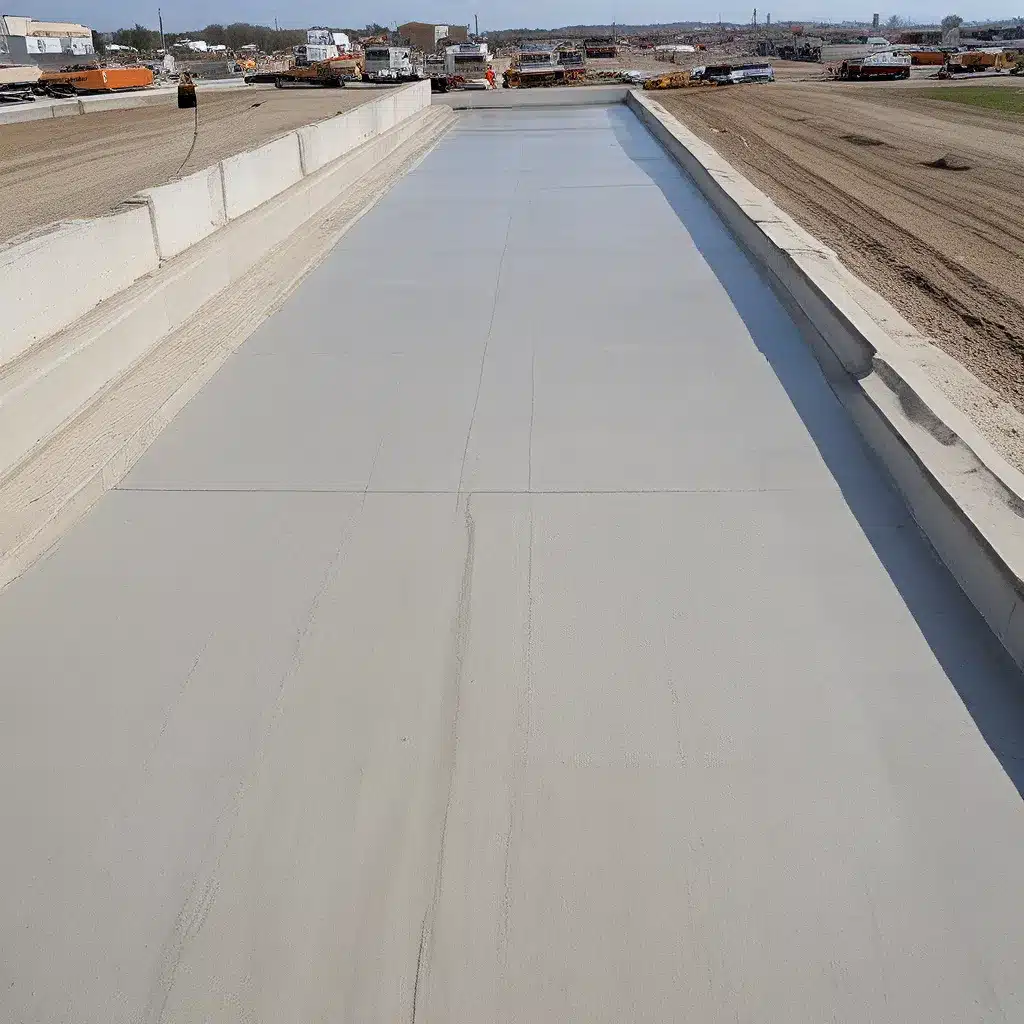
In the bustling construction landscape of Kansas City, the success of any project heavily relies on the strength and durability of concrete. As one of the most widely used building materials, concrete is the foundation upon which numerous residential, commercial, and infrastructure developments are built. However, maximizing the potential of this versatile material requires a deep understanding of the curing process and its impact on project timelines.
The Importance of Proper Concrete Curing
Concrete strength is not solely determined by the quality of the raw materials used in its composition. The curing process, which involves controlling the temperature, humidity, and duration of the concrete’s drying stage, plays a crucial role in its overall strength and longevity.
Proper concrete curing ensures that the cement hydration process occurs smoothly, allowing the individual components (cement, aggregate, and water) to bond together effectively. This bonding process is what gives concrete its renowned durability and compressive strength. If the curing conditions are not optimized, the concrete may not achieve its full potential, leading to premature cracking, crumbling, or reduced load-bearing capacity.
Factors Influencing Concrete Curing
To ensure that concrete curing is carried out effectively, it is essential to understand the key factors that can impact the process:
Temperature
Temperature is one of the most critical factors in concrete curing. Concrete that dries at higher temperatures will solidify faster than concrete drying in lower temperatures. However, excessively high temperatures can cause the concrete to dry too quickly, preventing the components from bonding properly and resulting in a weaker final product.
The optimal temperature range for concrete curing is generally between 53°F and 71°F. This range allows the cement to hydrate gradually, enabling the concrete to develop its full strength potential.
Humidity
Maintaining the correct humidity level during the curing process is also essential. Concrete requires a humid environment (typically 85-90% humidity) to ensure that the cement can fully hydrate and develop its desired properties. If the curing environment is too dry, the concrete may become brittle and susceptible to cracking.
Curing Duration
The duration of the curing process is another crucial factor. As a general rule, concrete should be allowed to cure for up to 28 days to ensure that the components have had sufficient time to bond and develop the desired strength. However, the concrete will continue to gain strength over time, even after the initial 28-day period.
Optimizing Concrete Curing in Kansas City
In the Kansas City region, where extreme weather conditions can pose a challenge to the construction industry, optimizing the concrete curing process is crucial for project success. By carefully managing the key factors of temperature, humidity, and curing duration, concrete contractors can ensure that their projects are completed faster and more efficiently.
Temperature Control
One of the most effective ways to maintain the ideal temperature range for concrete curing in Kansas City is to use curing blankets or enclosures. These specialized coverings help to regulate the temperature and prevent the concrete from drying out too quickly, even in the face of extreme heat or cold.
Concrete contractors in Kansas City with experience in curing techniques can also monitor the temperature closely and adjust the curing environment accordingly, ensuring that the concrete is allowed to hydrate at the optimal rate.
Humidity Management
To maintain the ideal humidity levels during the curing process, water-based curing methods are often employed. This can involve regularly misting the concrete or using water-saturated burlap to keep the surface continuously moist.
In some cases, humidity-controlled enclosures may be used to create a contained, high-humidity environment for the concrete to cure in. These specialized setups help to prevent premature drying and ensure that the cement hydration process can proceed uninterrupted.
Curing Duration
Adhering to the recommended 28-day curing period is crucial for ensuring that the concrete reaches its full strength potential. Experienced concrete contractors in Kansas City understand the importance of this step and will work closely with clients to plan project timelines that accommodate the necessary curing time.
In some instances, accelerated curing techniques may be used to speed up the process, such as the application of chemical curing agents or the use of high-heat curing environments. However, these methods should be carefully evaluated to ensure that they do not compromise the long-term durability and strength of the concrete.
The Benefits of Optimized Concrete Curing
By prioritizing the optimization of concrete curing processes, Kansas City construction projects can enjoy a host of benefits, including:
-
Faster Completion Times: Properly cured concrete can achieve its desired strength more quickly, allowing construction teams to progress to the next stages of the project sooner.
-
Improved Structural Integrity: Concrete that has been cured under the right conditions will be more durable, resistant to cracking, and capable of withstanding heavier loads over the long term.
-
Cost Savings: Effective concrete curing can reduce the need for costly repairs or remediation work down the line, leading to overall project cost savings for clients.
-
Enhanced Curb Appeal: Well-cured concrete can provide a smoother, more uniform appearance, contributing to the aesthetic appeal of the final project.
Partnering with Experienced Concrete Contractors
To ensure that the concrete curing process is optimized for Kansas City projects, it is essential to partner with experienced concrete contractors who have a deep understanding of the local climate and construction industry.
Quicksilver ReadyMix and Talon Concrete, for example, are leading concrete suppliers in the Kansas City area with a proven track record of delivering high-quality products and services. Their specialized concrete mixes and expertise in curing techniques can help ensure that your project is completed on time and to the highest standards.
By prioritizing the optimization of concrete curing processes, construction professionals in Kansas City can unlock a world of benefits, from faster project completion to enhanced structural integrity and long-term cost savings. With the right partners and a deep understanding of the key factors involved, your Kansas City construction project can truly build with confidence.

